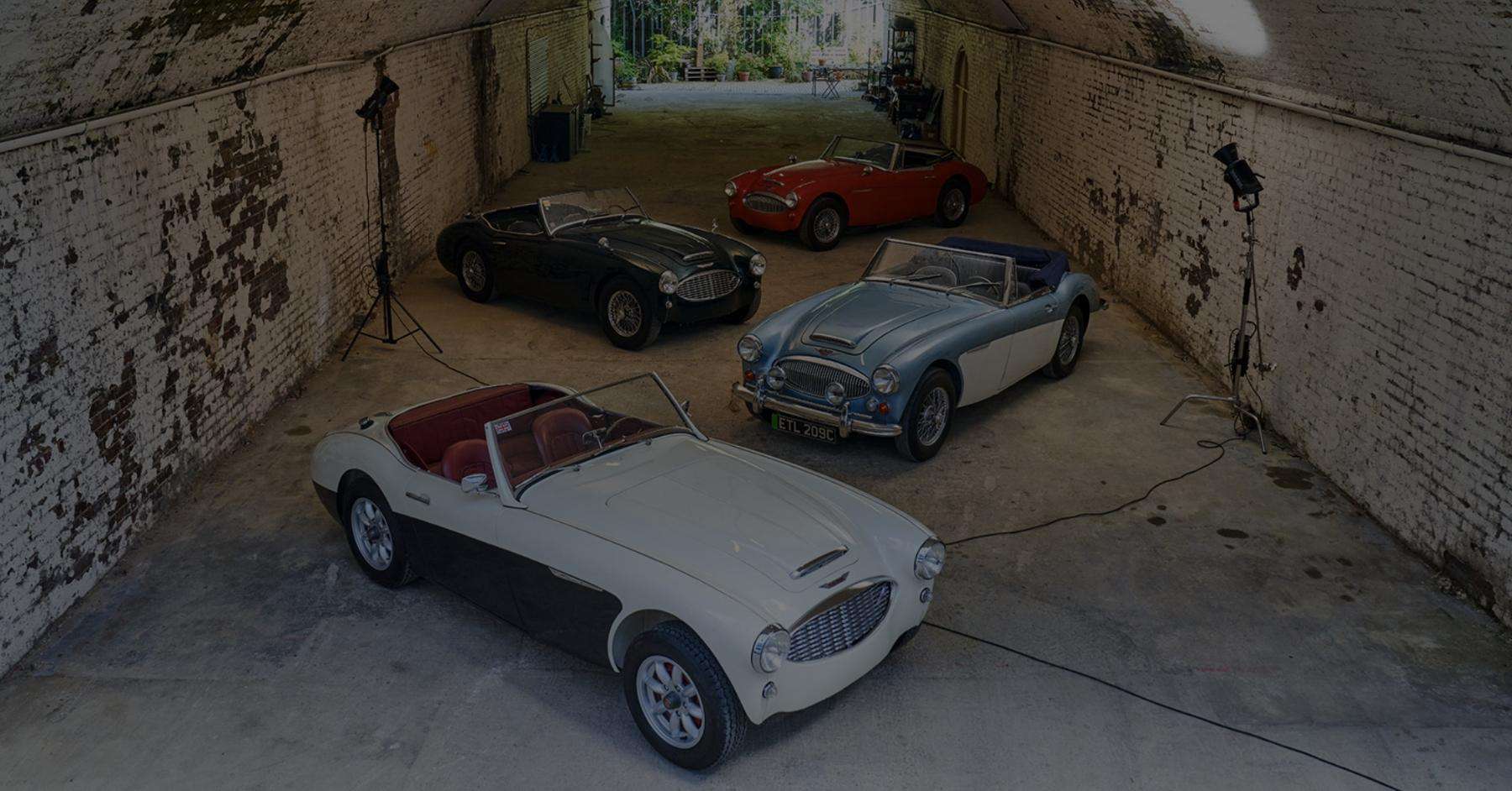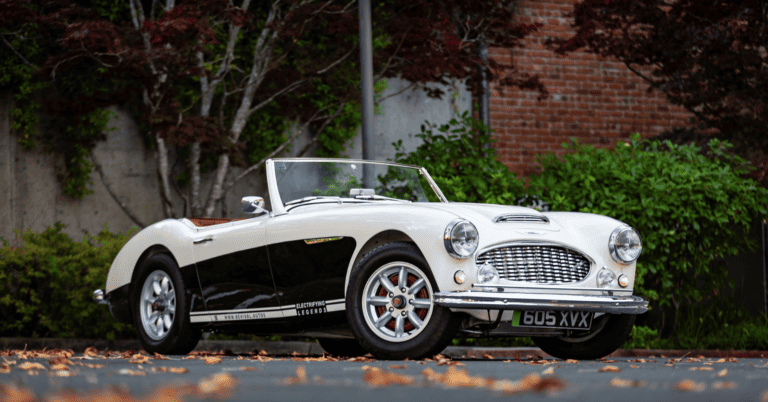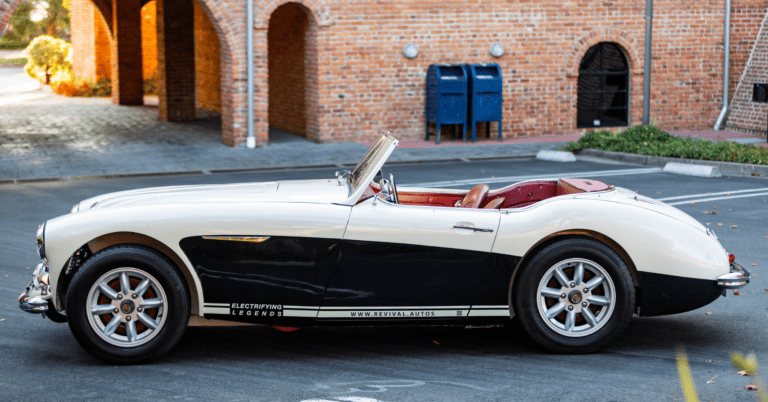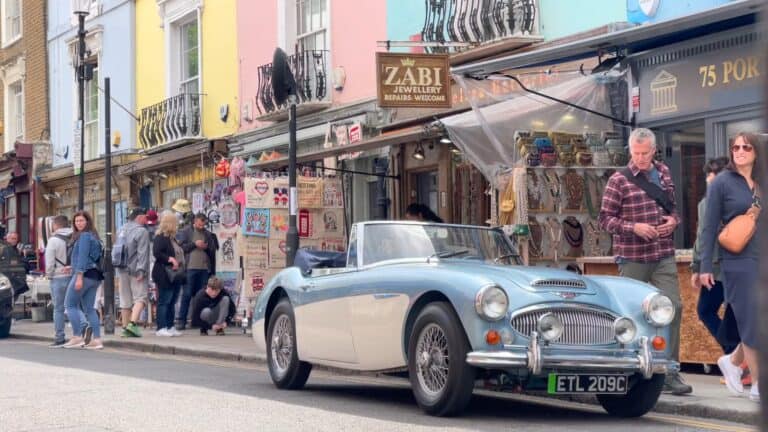In the ever-evolving world of automobile collecting, a fresh and electrifying trend is quietly gaining momentum – electric classic cars. These electrified vintage beauties are not just a flash in the pan; they represent the next big wave in the world of auto collecting. In this article, we’ll explore why electric classic cars are making waves in the auto-collecting scene without resorting to clichés.
A Classic Love Affair
For decades, classic cars have been coveted by collectors for their timeless charm, elegant designs, and rich histories. They are not just vehicles; they are rolling pieces of art and nostalgia. Owning a classic car is akin to possessing a tangible piece of history, a portal to a bygone era where craftsmanship and style were paramount.
The Paradigm Shift
However, as we navigate an era where environmental concerns loom large, the classic car industry has been at a crossroads. The roar of gasoline engines is now being harmonized with the gentle hum of electric motors, giving birth to the phenomenon of electric classic cars. This marks a paradigm shift in the world of auto collecting, where sustainability meets nostalgia.
The Art of Electrification
The process of transforming a vintage gasoline-powered classic into an electric marvel is a blend of science and art. Here’s a glimpse into the intricate process:
- Choosing the Right Canvas: Not every classic car is a suitable candidate for electrification. Factors like weight, space for batteries, and the car’s overall condition play a pivotal role in the selection process.
- Delicate Disassembly: The journey begins by carefully dismantling the car, removing its internal combustion engine, fuel tank, and exhaust system.
- Seamless Integration: The heart of the conversion lies in installing an electric motor, a battery pack, and a controller while preserving the car’s vintage aesthetics. This marriage of modern technology and classic charm is where magic happens.
- Preserving the Classics: Authenticity is paramount. Experts ensure that the conversion remains nearly invisible, with hidden wires and a dashboard that retains its classic allure.
- Fine-Tuning for Perfection: After installation, rigorous testing and fine-tuning are conducted to ensure that the electric classic car runs seamlessly and efficiently.
Advantages of Owning an electric classic car
Electric classic cars bring a plethora of advantages that extend beyond mere nostalgia:
1. Eco-Friendly Elegance
- They emit zero tailpipe emissions, making them a responsible choice for environmentally-conscious collectors.
- A substantially reduced carbon footprint compared to their gasoline counterparts.
2. Cost-Effective Operation
- Lower operating costs due to the affordability of electricity.
- Reduced maintenance expenses as electric motors have fewer moving parts.
3. Modern Comforts
- Electric classic cars can be equipped with modern amenities like air conditioning and power steering.
- Enhanced safety features can also be seamlessly integrated.
4. Serenity in Motion
- Say farewell to the thunderous roars of gasoline engines. Electric motors operate quietly, allowing collectors to savor the peaceful hum of the road.
The Road Ahead
As the popularity of electric classic cars continues to soar, more companies are entering the market, offering conversion services and even creating brand-new electric replicas of classic models. This movement isn’t confined to niche startups; established automakers are also jumping on the bandwagon.
With ongoing advancements in battery technology and the expansion of charging infrastructure, the future of electric classic cars appears brighter than ever. A day might soon come when these eco-friendly classics grace our roads without raising an eyebrow.
In Conclusion
Electric classic cars signify a significant evolution in the realm of auto collecting. They seamlessly combine elegance with eco-friendliness. If you’ve ever aspired to own a classic car without compromising your environmental principles, that aspiration can now be realized. Electric classic cars provide an attractive solution, permitting you to enjoy the nostalgia of classic car ownership while simultaneously minimizing your environmental footprint. As the automotive landscape evolves, classic cars continue to adapt, ensuring that the joy of collecting endures for future generations.
Revival Autos
Revival Autos is your gateway to understanding why electric classic cars are becoming the next big thing in auto collecting. Our team of experts specializes in transforming classic cars, including the beloved Austin Healey 100 and Austin Healey 3000, into electrifying treasures that bridge the gap between past and future. Join us as we delve into the reasons behind the rising popularity of electric classic cars in the world of auto collecting. These vehicles aren’t just a trend; they’re a cultural shift, and Revival Autos is here to guide you through this electrifying evolution. Explore more about our services at Revival Autos and be part of the future of classic car collecting.
FAQs
What are electric classic cars?
electric classic cars represent a fusion of vintage automotive aesthetics and modern environmental consciousness. These vehicles retain their classic exteriors while undergoing a transformation beneath the surface. The traditional, noise-producing engines are swapped out for quiet, eco-friendly electric powertrains. This conversion allows classic car enthusiasts to enjoy the nostalgic charm of their favorite vehicles without compromising on sustainability.
What are the benefits of electric classic cars?
electric classic cars bring a host of advantages to the table:
- Economical: Operating costs are notably reduced as electricity tends to be more affordable than gasoline. Moreover, these cars have fewer mechanical components, translating to lower maintenance expenses over the long term.
- Environmental Impact: electric classic cars leave no emissions trail. They contribute positively to the environment by reducing air pollution and cutting down on fossil fuel consumption.
- Performance: Electric motors offer instantaneous torque, ensuring smooth and swift acceleration. This attribute enhances the driving experience, making it both exhilarating and seamless.
Are electric classic cars eco-friendly?
The eco-friendliness of electric classic cars is undeniable. By ditching traditional combustion engines, these vehicles significantly reduce the emission of harmful pollutants. They play a vital role in maintaining air quality and combatting the detrimental effects of pollution.
What are the environmental benefits of driving an electric classic car?
electric classic cars not only offer an eco-conscious way of driving but also contribute to broader environmental goals:
- Air Quality: By eliminating tailpipe emissions, they help to keep the air cleaner. In urban areas where air pollution is pressing concerns. This benefits both human health and environment.
- Carbon Footprint: electric classic cars can be charged using electricity from cleaner and renewable sources, reducing the overall carbon footprint of transportation. This aligns with global efforts to mitigate climate change.
- Resource Conservation: As they reduce the consumption of fossil fuels, electric classic cars play a part in conserving these finite resources and reducing the environmental impact of their extraction and use.
What is the performance of an electric classic car like?
electric classic cars offer an impressive blend of features:
- Swift Acceleration: Electric motors deliver rapid and seamless acceleration, providing an exciting and responsive driving experience.
- Quiet Operation: These cars are remarkably silent in comparison to their gasoline-powered counterparts. The absence of engine noise enhances the overall comfort of the driving experience.
- Balanced Handling: The placement of heavy batteries often results in a lower center of gravity, improving stability and handling. This characteristic contributes to a smooth and enjoyable ride.
How does the performance of electric classic cars compare to gasoline-powered ones?
electric classic cars hold their own when compared to traditional classics:
- Acceleration: electric classic cars frequently outperform their gasoline counterparts in acceleration due to the instant torque delivery of electric motors.
- Noise Level: The quiet operation of electric classic cars stands in stark contrast to the noise produced by gasoline engines, creating a more refined driving ambiance.
- Maintenance: electric classic cars generally require less maintenance due to their simpler design with fewer moving parts. This translates to higher reliability and lower long-term maintenance costs.
How long does it take to charge an electric classic car?
Charging times for electric classic cars vary depending on the charger type:
- Fast Charging: Fast chargers can replenish battery within few hours. It typically ranges from 1 to 4 hours. This depends on charger power output and the cars battery capacity.
- Standard Charging: Standard chargers necessitate overnight charging. It is from 8 to 12 hours. The specific duration depends one battery size and charger.
How far can an electric classic car travel on a single charge?
electric classic cars stereotypically offer a driving range of 100 to 200 miles on single charge. Although this can vary based on things.
For example: battery capacity, driving conditions, driving habits etc. Some models equipped with larger battery packs can extend this range even further. This makes them suitable for longer journeys.
What is the range of an electric classic car on a full charge?
Most electric classic cars can cover distances ranging from 100 to 200 miles on a full charge. This range is influenced by advances in battery technology, which continue to enhance the practicality of these vehicles for everyday use.
How long does the battery last in an electric classic car?
electric classic car batteries typically have a lifespan of 8 to 15 years or more, depending on factors like usage patterns, maintenance practices, and the quality of the battery itself. Proper care and adherence to manufacturer guidelines can maximize battery longevity.
Is it difficult to maintain an electric classic car?
Maintaining an electric classic car is straightforward due to their simplified design:
- Regular Check-Ups: Routine check-ups and servicing are essential to ensure the vehicle remains in top condition. These often involve inspecting the electric motor, battery system, brakes, tires, and other vital components.
Are electric classic cars reliable?
electric classic cars are renowned for their reliability:
- Fewer Breakdowns: They experience fewer mechanical breakdowns compared to traditional classics, making them dependable for regular use.
Do electric classic cars retain their original value?
electric classic cars have the potential to appreciate in value over time:
- Unique Appeal: Their uniqueness and eco-friendliness make them highly sought after among collectors and enthusiasts, contributing to their increasing value.
- Eco-Friendly Attraction: The growing emphasis on sustainability enhances their appeal, with buyers willing to pay a premium for environmentally conscious options.
- Historical Significance: Some electric classic cars have historical significance as early examples of electric vehicles, adding to their worth among collectors.
- Conversion Quality: The quality of the electric conversion or restoration process significantly impacts the car’s value. Well-executed conversions and restorations are more likely to command higher prices.
Which company specializes in electric classic car Conversion?
Revival Autos is a prominent player in the conversion of classic cars into electric classics. They have earned a solid reputation for their prowess in seamlessly integrating electric powertrains while preserving the classic aesthetics that enthusiasts hold dear.
Where can I get my classic car converted to electric?
Specialized establishments like Revival Autos offer a professional touch when it comes to converting classic cars into electric classics. They possess the expertise and resources required to execute conversions with precision and authenticity.
How much does it cost to convert a classic car to electric?
The cost of converting a classic car to electric varies based on individual specifications:
- Varied Expenses: The make and model of the classic car, chosen electric components, conversion quality, and customization requirements all influence the final cost. To obtain an accurate estimate, consulting conversion experts is advisable.
Are there any government incentives for converting a classic car to electric?
In certain regions, government incentives aim to encourage electric conversions:
- Local Programs: These incentives may include financial incentives, tax credits, or grants to promote sustainable transportation choices. Checking with local authorities is the best way to determine the availability of such offers.
Are there tax incentives for converting classic cars to electric?
Tax incentives for electric conversions may be accessible in particular areas:
- Location-Specific: The availability of tax benefits varies by location and is subject to local tax laws and regulations. Seeking guidance from tax professionals familiar with regional tax incentives is recommended.
What is the future of electric classic cars?
electric classic cars are on an upward trajectory:
- Growing Popularity: Their style and environmental credentials are winning over more enthusiasts, positioning them as a compelling choice for preserving classic car culture while embracing sustainability.
How does Revival Autos lead the transformation in electric classic cars conversions?
Revival Autos takes the lead in the conversion of classic cars into electric classics:
- Expertise: Their team of experts brings extensive knowledge and experience to the table, ensuring a seamless fusion of classic aesthetics and modern electric technology.
- Quality: Revival Autos is committed to delivering top-tier conversion quality, leaving no compromise on craftsmanship.
- Innovation: Staying abreast of electric vehicle advancements, they incorporate the latest technology, ensuring their electric classics offer superior performance and reliability.
- Customer-Centric Approach: Revival Autos prioritizes customer satisfaction, tailoring solutions to individual preferences and requirements.
- Heritage Preservation: Their work serves to bridge the gap between automotive history and the sustainable future of transportation, contributing to the preservation of classic car culture.





